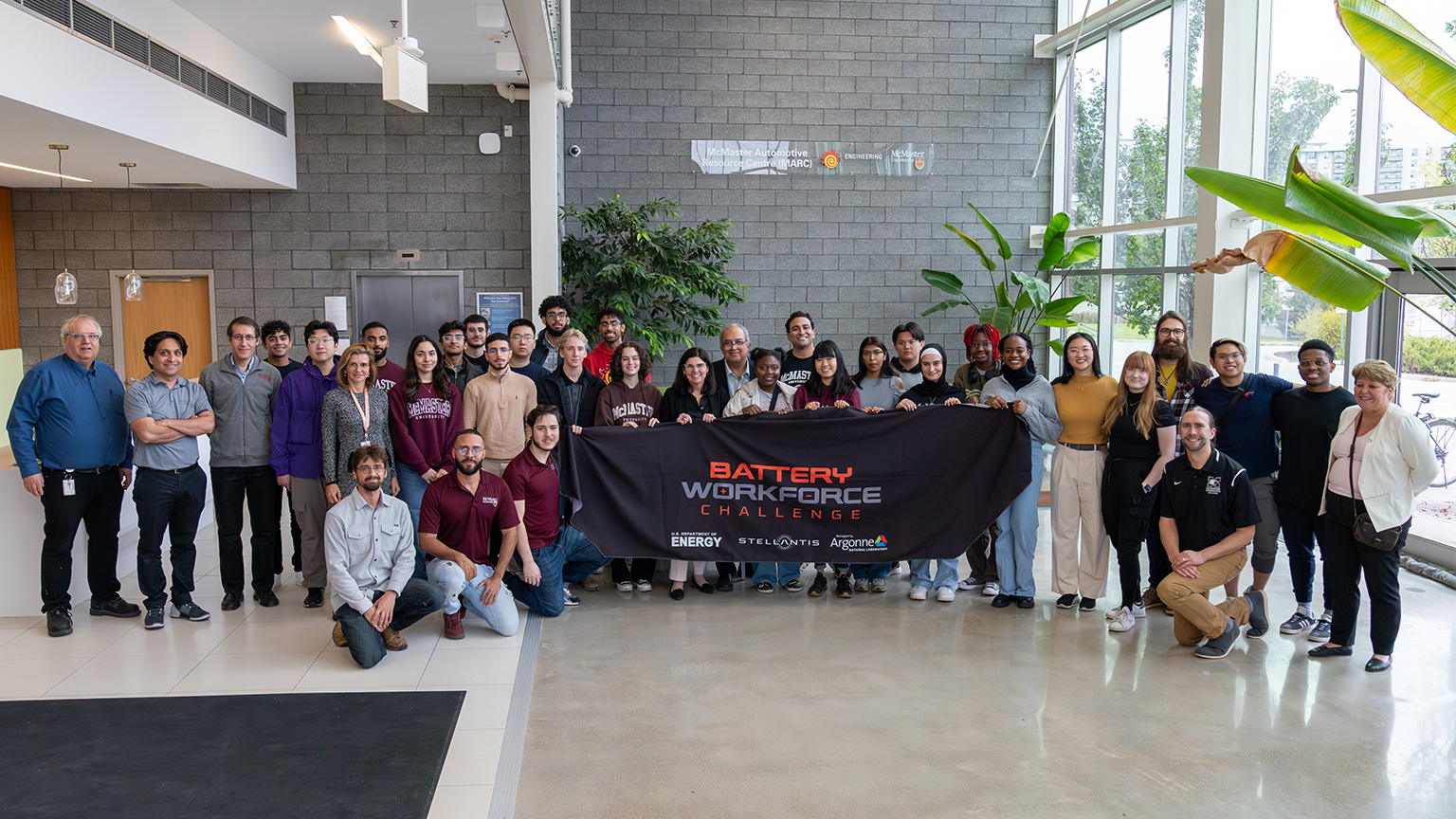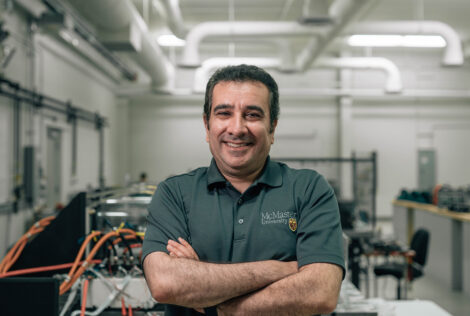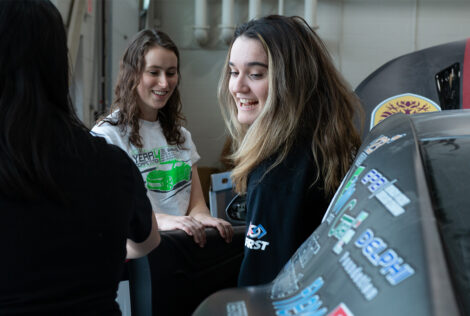

McMaster University was announced as one of the 12 universities across North America, and one of two universities in Canada, to be selected to participate in a new student-led competition in collaboration with the U.S. Department of Energy in partnership with Stellantis, the company formed by the merger of Fiat Chrysler and Peugot, and other government and industry sponsors.
The Battery Workforce Challenge is a new three-year student competition that began in October of 2023 and will challenge universities and vocational schools from across North America to design, build, test and integrate an advanced EV battery pack into a Stellantis brand vehicle. McMaster will be competing in the collegiate competition of this challenge. Mechanical engineering professor Saeid Habibi will serve as the faculty lead, with faculty co-leads Phil Kollmeyer and Ryan Ahmed.
This public-private partnership will build the next generation of engineers, technicians, and workers to address the unprecedented demand for a domestic EV/Battery workforce.
We are thrilled that McMaster was selected to join the BattChallenge competition. This one-of-a-kind competition is the perfect opportunity for exposing undergraduates to the rapidly growing energy storage area. The timing is perfect – we have just finished building a fast-charging test facility, one of the requirements of the competition, and we have multiple new faculty hires and industry funded research projects in the energy storage area.
Through this hands-on learning experience, participating students will follow real-world industry milestones focused on battery design, simulation, controls development, testing, and vehicle integration and demonstration. Students will learn valuable project management, communications, teamwork, and problem-solving skills that will provide unparalleled educational experience and ready them for future careers throughout the battery industry.
“McMaster University is a world-leading institution that attracts some of world’s brightest. McMaster students will have a fantastic opportunity to represent Canada and demonstrate their knowledge and expertise in the rapidly growing EV sector,” says Minister Filomena Tassi, Member of Parliament for Hamilton West – Ancaster – Dundas and Minister Responsible for the Federal Economic Development Agency for Southern Ontario. “Congratulations to the students who are leading the charge as we find new ways to fight climate change and grow Canada’s economy.”
McMaster University’s engineering students have long been involved in the electrification and transportation sector through various initiatives and hands-on learning models including those offered at the Centre for Mechatronics and Hybrid Technologies.
Learn more about the Battery Workforce Challenge and McMaster University’s Faculty of Engineering.


